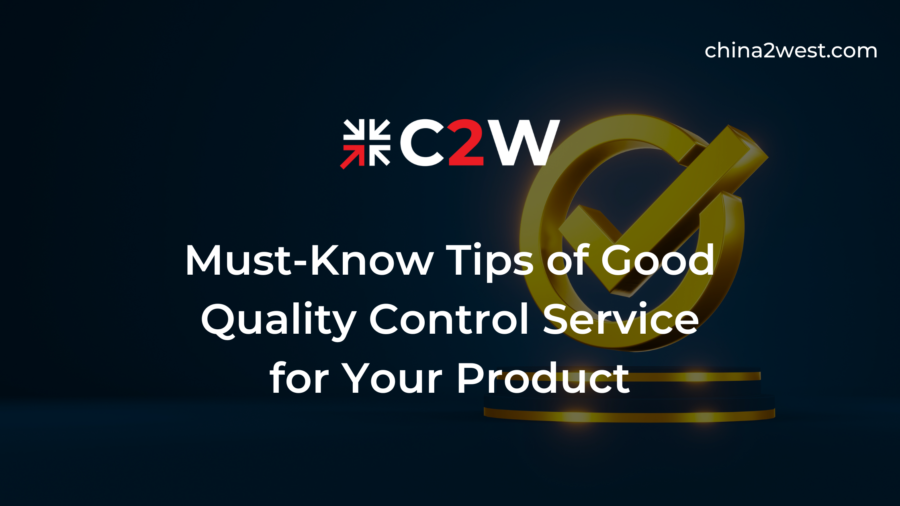Are you eager to ensure that your products meet the highest standards of quality before reaching your customers? Quality control plays a crucial role in ensuring customer satisfaction and the success of your business.
In this article, we will delve into essential tips for implementing a good quality control service for your products. Let’s explore the key factors that will help you achieve excellence in your product offerings.
Understanding the Importance of Quality Control
Before diving into the details of quality control service, it is crucial to comprehend its significance. Quality control ensures that your products consistently meet the required standards and satisfy customer expectations. It helps identify and rectify defects before the products reach the market, preventing potential customer complaints and negative brand reputation.
Setting Clear Quality Standards
Establishing clear and well-defined quality standards is the foundation of an effective quality control process. These standards act as benchmarks against which all products are evaluated. The standards should be specific, measurable, achievable, relevant, and time-bound (SMART) to be practical and attainable.
Integrating Quality Throughout the Process
Quality control should not be an isolated step at the end of the production process. Instead, it must be integrated into every stage of product development, from the initial design to the final production. By doing so, you can identify and address potential issues at an early stage, saving time and resources.
Training and Empowering Your Team
Your employees play a vital role in quality control. Providing comprehensive training to your team about quality standards, inspection techniques, and defect identification is essential. Empower them to take ownership of the quality control process, encouraging a sense of responsibility and dedication to producing superior products.
Utilizing Technology for Efficiency
Leveraging advanced technology and automation can significantly enhance the efficiency and accuracy of quality control. From using sensors and machine learning algorithms for defect detection to employing data analytics for performance evaluation, technology can revolutionize your quality control efforts.
Identifying and Addressing Defects
Identifying defects promptly and taking immediate corrective actions is crucial. Implement a robust system for defect tracking and analysis, allowing you to pinpoint the root causes of issues and prevent their recurrence in the future.
Implementing Customer Feedback
Customer feedback is an invaluable resource for improving product quality. Actively seek feedback from customers, and use their insights to identify areas for improvement. By understanding customer preferences and pain points, you can tailor your products to meet their needs effectively.
Regular Audits and Inspections
Conducting regular audits and inspections is essential to ensure that your quality control process is on track. These assessments help in evaluating the effectiveness of your quality control efforts and making necessary adjustments to maintain high standards.
Ensuring Compliance with Regulations
Compliance with industry and regulatory standards is non-negotiable. Stay informed about the latest regulations and standards relevant to your industry and ensure that your quality control practices align with them.
Continuous Improvement and Innovation
Quality control is not a one-time activity but an ongoing process of improvement. Encourage a culture of continuous improvement and innovation within your organization to stay ahead of the competition and adapt to changing customer demands.
Building a Strong Quality Culture
Instilling a strong quality culture throughout your organization is paramount. Emphasize the significance of quality in every aspect of your business, from hiring practices to performance evaluations, fostering a commitment to excellence at all levels.
Supplier Quality Management
Your suppliers play a significant role in determining the quality of your end product. Implement effective supplier quality management practices, such as supplier audits and performance evaluations, to ensure that your suppliers meet your quality standards consistently.
The Role of Leadership in Quality Control
Strong leadership is essential for the success of your quality control endeavors. Leaders must lead by example and prioritize quality, motivating their teams to achieve excellence in every aspect of the product development and delivery process.
Implementing a robust quality control service is an investment that pays off in the form of enhanced customer satisfaction, brand loyalty, and business success. By following the essential tips outlined in this article, you can build a strong foundation for delivering top-notch products that meet and exceed customer expectations. Or you can choose to work with C2W. With their local team based throughout Asia and 18 years of QC experience under the belt, all you quality concerns can be eased from the get-go! Contact us now.




